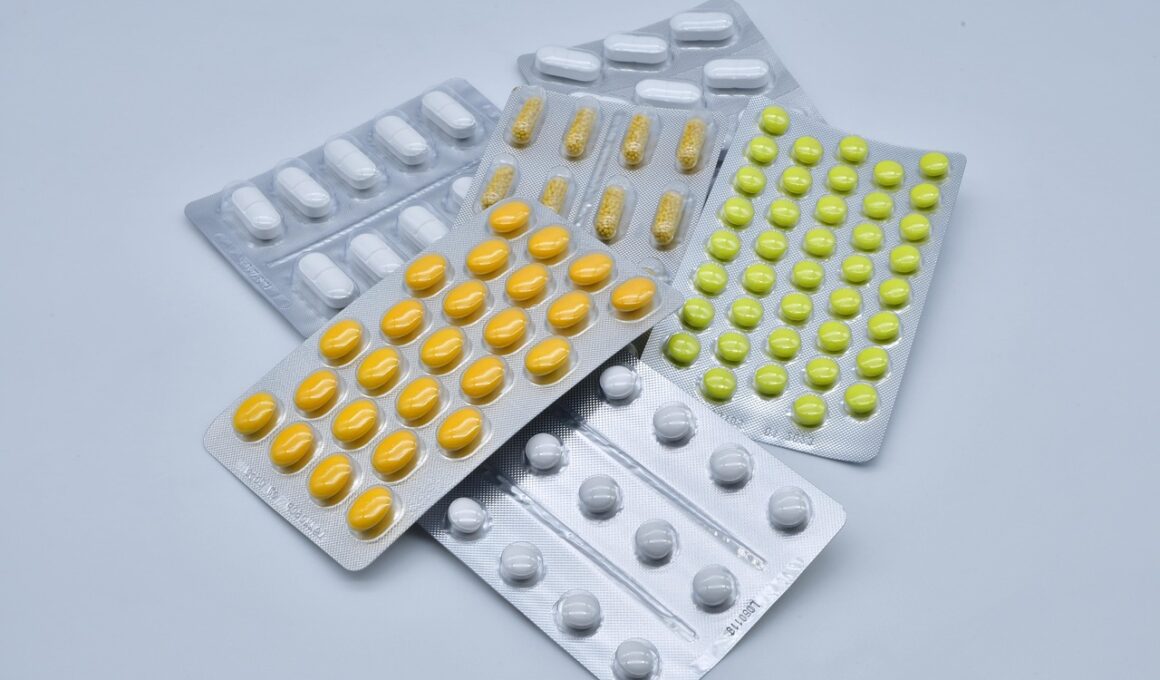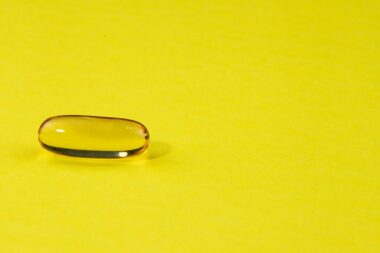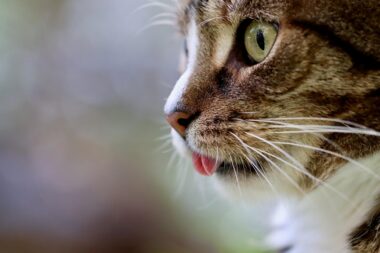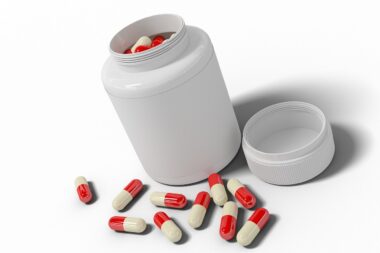Protecting Cat Vitamins from Moisture: Storage Tips
When it comes to keeping your cat vitamin supplements in optimal condition, moisture is the enemy. High humidity can lead to mold and spoilage, degrading the quality of the vitamins essential for your cat’s health. To prevent moisture from ruining these important supplements, always store them in cool, dry environments. Avoid areas like bathrooms and kitchens where humidity fluctuates frequently. It’s crucial that you place the vitamins in airtight containers to provide an extra layer of protection against moisture. Glass jars or high-quality plastic containers with tight seals can work effectively. Additionally, consider placing a moisture-absorbing product, such as silica gel packets, in the storage area to absorb any humidity present. Always ensure the vitamins are used within their expiration date for optimal potency. Check them periodically for any signs of spoilage, such as unusual odors or color changes. If you have any doubts about their integrity, consult your veterinarian for further guidance, especially if your cat shows signs of health issues. Keeping your cat’s vitamins dry and safe should be a structured part of your pet care routine and can significantly impact their health.
In addition to using airtight containers, it’s wise to keep both vitamins and containers clean. Dust and dirt can accumulate, introducing moisture and bacteria into the supplements. Always make sure to wash containers thoroughly before use and allow them to dry completely. When handling vitamins, use dry hands or utensils to minimize moisture exposure. Never leave the lids off the vitamin containers for extended periods, as this can allow moisture to enter. Labeling your containers can also help keep track of different supplements while ensuring they’re always sealed promptly after use. If you purchase larger quantities of vitamins, consider dividing them into smaller portions that are used more frequently. This way, you can keep the bulk supply sealed away from moisture and contaminants. Store these smaller portions in a cool drawer or cupboard away from direct sunlight, as UV exposure can also harm the vitamins’ composition. Ideally, vitamins should be stored at room temperature and should never be refrigerated unless the label specifies otherwise. Supplying your cat with high-quality vitamins depends significantly on how well you maintain their condition.
Regular Monitoring of Vitamins
To ensure the cat vitamin supplements remain effective, regular monitoring is essential. Check your stored vitamins for any changes in their appearance, smell, or texture. If a bottle or container appears damaged or compromised in any way, it might be time to discard the contents and replace them. Keeping a close eye also allows you to track the usage against the expiration dates printed on the packaging. Setting a reminder or keeping a log about when each batch was purchased and opened can assist in this process. Consider organizing a monthly check-in where you assess vitamins and update their status. If you notice the vitamins losing effectiveness, consult with your veterinarian about alternatives that may be more beneficial. It’s also crucial to involve your pet in this practice; look for any signs of discomfort or resistance when taking the vitamins, as they might indicate spoilage. Additionally, if any unusual behavior arises following the administration of vitamins, take immediate action. Knowing when to replace or adjust your approach to cat vitamins can potentially save money and safeguard your pet’s health.
Pet owners should be aware that certain human vitamins can be toxic to cats. Always ensure that the vitamins you purchase are specifically formulated for felines. Reading the labels is important, focusing not just on storage tips but also on appropriate dosages. Involving a vet in your selection process can clarify any doubts regarding appropriate supplements. If your cat has specific dietary needs, consider reaching out to a pet nutritionist for tailored advice. When introducing new vitamin supplements, doing so gradually allows your pet’s digestive system to adapt smoothly. This gradual approach can also facilitate easier observation for potential side effects. Your cat’s health and wellbeing depend on ensuring they receive proper nutrition, including vitamins, without any adverse reactions. Additionally, creating a routine around the administration of these vitamins can help cats to accept them more readily. A consistent schedule allows your cat to expect their vitamins, reducing stress during each administration session. By understanding the unique needs of your feline friend and following proper storage protocols, you can enhance their quality of life through effective supplementation.
Choosing the Right Storage Location
The location you choose for storing cat vitamin supplements can significantly affect their longevity and effectiveness. Avoid placing them in areas where they are exposed to extreme temperature changes. This includes positions near windows or heating sources that may cause the vitamins to degrade. It’s best to opt for a pantry or cabinet dedicated to pet supplies; preferably, it should be away from high-traffic areas. A lower shelf can be ideal, as it can maintain a consistent temperature. Also, look for places that are safe from curious paws. Cats tend to explore their surroundings, and if they discover their vitamin supply, they might chew and ingest something potentially harmful. Evaluate the security of your storage solution regularly and make necessary adjustments. Storing vitamins at a sufficient elevation can deter your pet from accidentally accessing them. Always prioritize a location where you can easily see and access the vitamins when needed. This ensures that they are within reach during feeding time, creating a positive routine for vitamin intake and minimizing forgetfulness. A proactive approach to storing vitamins enhances their utility in your pet’s health regimen.
Introducing your cat to vitamin supplements should be done with a positive approach. Cats may be sensitive to changes in their routine, so ensuring a positive experience with vitamins is key. Begin by offering the supplements with their favorite foods as a way to entice them. Cats tend to have preferences, so find treats that your cat enjoys that can mask the vitamin taste. If your cat is resistant to taking them, speak with your vet about palatable options that better suit your pet’s taste preferences. Alternatively, you could discuss liquid form supplements, which can often be easier to administer. When considering new products, pay attention to reviews of the product and ensure they have been tested and recommended for cats specifically. Observe your cat’s reaction carefully in order to assess how well they tolerate or enjoy their vitamins. Understanding their preferences can go a long way in making supplementation pleasant rather than a chore. Overall, focus on building a routine that integrates the vitamins smoothly into your cat’s mealtime or treat time, fostering a healthy lifelong habit that supports their well-being.
Health Benefits of Cat Vitamins
Understanding the health benefits that come from cat vitamin supplements is essential for pet owners. Vitamins serve critical roles in various bodily functions, including immune support, skin health, and maintaining energy levels. For instance, Vitamin E supports the immune system, while Vitamin A contributes to eye health. Without proper vitamin intake, cats may face various health issues ranging from weakened immune responses to poor coat conditions. As they age, their need for certain vitamins might increase. Seniors cats, for example, could benefit from additional B vitamins to maintain metabolic health. Additionally, some supplements also contain omega fatty acids that promote skin and coat shine. Always ensure that any vitamins you provide are appropriate for your cat’s specific age, health status, and activity level; doing so maximizes their benefits. Regular check-ups and discussions with your veterinarian can help you navigate the best vitamin choices tailored to your pet. A comprehensive approach to your cat’s diet that involves proper vitamin supplementation can greatly enhance their overall health and longevity, giving them a happier, more energetic lifestyle.
In conclusion, safeguarding your cat vitamin supplements from moisture is paramount for maintaining their quality. Storing them in airtight containers, being aware of humidity levels, and regularly monitoring their condition significantly contribute to ensuring they’re always effective. Moreover, choosing the right location for storage enhances their longevity while creating a positive environment for administration is equally important. Educating yourself on the specific vitamin needs of your cat helps in making informed decisions about supplementation. By adopting these storage and admin practices, you not only invest in your pet’s health but also encourage a stress-free routine that includes nutritional support. If ever in doubt about the vitamins used, consult with a veterinarian for tailored advice. Investing time into understanding your cat’s specific health needs goes a long way in providing lasting benefits. Don’t overlook the importance of maintaining a systematic process for reviewing your cat’s vitamin intake so that any changes can be quickly implemented. Keeping a close eye on these supplements ensures the best nutrition possible, ultimately leading to happier and healthier cats. Embrace supplementation as an integral part of your pet care routine.





